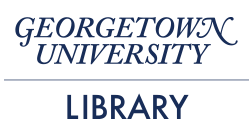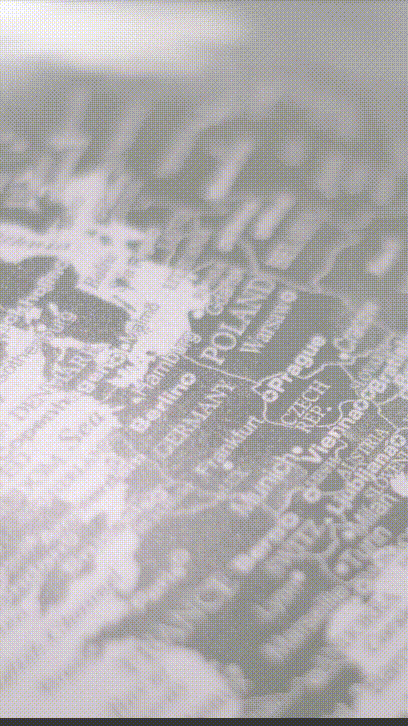Fishers’ lives matter: social issues in small-scale fisheries migration of Ghana
DOI:
https://doi.org/10.47193/mafis.3622023010503Keywords:
Migrant fishers, West Africa, conflicts, fisheries management, fisheries resourcesAbstract
Migration is a common feature of most small-scale fisheries (SSF) across the globe. To enhance fisheries resources sustainability and management, we examined the social issues in the SSF from the perspective of fishers, Chief Fishermen, and Fisheries Technical Officers who are actively involved in SSF migration and fisheries management along the coast of Ghana. We conducted in-depth interviews in six important migrant fishers’ communities and analysed documents on the socio-economic conditions of migrant fishers, conflicts among migrant fishers, rights of migrant fishers and the role of government in managing fishers’ migration. Findings showed that the successful integration of migrant fishers in the host communities resulted in minimal conflictual incidents that are resolved through dialogue. Furthermore, both the Fisheries Technical Officers and Chief Fishermen are involved in conflict resolution depending on the nature of the dispute. Also, most migrant fishers (over 50%) have the same rights as the local fishers, though they are marginalized during the distribution of premix fuel. Migrant fishers with prominent status played key role during decision-making process in the host communities. Overall, the study showed that migrant fishers have aided in the progress of fishing technology, food security, and small-scale business in the host fishing communities. To avert any form of marginalization during the distribution of premix fuel, it is prudent for authorities to develop relevant policies that will ensure that migrant fishers receive enough fuel for their fishing activities in the host communities.
Downloads
References
Adjei JK, Sika-Bright S. 2019. Traditional beliefs and sea fishing in selected coastal communities in the Western Region of Ghana. Ghana J Geogr. 11 (1): 1-19.
Amponsah SK, Asiedu B, Failler P, Avornyo SY, Commey NA. 2021. Population dynamics of Ilisha africana in Coastal Waters of Ghana. Fish Aquacult J. 12 (3): 100288.
Amponsah SK, Ofori-Danson PK, Nunoo FK, Ameyaw GA. 2019. Estimates of population parameters for Sardinella maderensis (Lowe, 1838) in the coastal waters of Ghana. Greener J Agric Sci. 9 (1): 23-31.
Andriesse E, Saguin K, Ablo AD, Kittitornkool J, Kongkaew C, Mang’ena J, Onyango P, Owusu V, Yang J. 2022. Aligning bottom-up initiatives and top-down policies? A comparative analysis of overfishing and coastal governance in Ghana, Tanzania, the Philippines, and Thailand. J Rural Stud. 92: 404-412. DOI: https://doi.org/10.1016/j.jrurstud.2022.03.032
Appiah S, Antwi-Asare TO, Agyire-Tettey FK, Abbey E, Kuwornu JK, Cole S, Chimatiro SK. 2021. Livelihood vulnerabilities among women in small-scale fisheries in Ghana. Eur J Dev Res. 33 (6): 1596-1624.
Asiedu B, Failler P, Amponsah SKK, Okpei P, Setufe SB, Annan A. 2022. Fishers’ migration in the small pelagic fishery of Ghana: a case of small-scale fisheries management. Ocean Coast Manage. 229: 106305. DOI: https://doi.org/10.1016/j.ocecoaman.2022.106305
Asiedu B, Failler P, Beyens Y. 2018. Ensuring food security: an analysis of the industrial smoking fishery sector of Ghana. Agric Food Secur. 7: 38. DOI: https://doi.org/10.1186/s40066-018-0187-z
Asiedu B, Nunoo FKE, Ofori-Danson PK, Sarpong DB, Sumaila UR. 2013. Poverty measurements in small-scale fisheries of Ghana: a step towards poverty eradication. Curr Res J Soc Sci. 5 (3): 75-90.
Bennett E. 2002. The Challenges of managing small scale fisheries in West Africa. Final Technical Report. Annalytical Appendix 2: 235. CEMARE. 18 p.
Caddy J, Seijo JC. 2005. This is more difficult than we thought! The responsibility of scientists, managers and stakeholders to mitigate the unsustainability of marine fisheries. Philos Trans R Soc B. 360: 59-75.
Cordell JC. 2002. A project to assist Brazilian agencies researchers and communities in developing a system of extractive marine reserves. São Paulo: Nupaub.
Daw TM, Cinner JE, McClanahan TR, Brown K, Stead SM, Graham NA, Maina J. 2012. To fish or not to fish: factors at multiple scales affecting artisanal fishers’ readiness to exit a declining fishery. PLoS ONE. 7 (2): e31460.
Deme EHB, Failler P, Deme M. 2021. Migration of Senegalese artisanal fishermen in West Africa: patterns and impacts. Afr Identities. 19 (3): 253-265. DOI: https://doi.org/10.1080/14725843.2021.1937049
[DFID] Department of International Development. 2004. Migration and development: how to make migration work for poverty reduction. Sixth Report of Session 2003-04. Vol. 1. London: House of Commons (HC79-I). https://publications.parliament.uk/pa/cm200304/cmselect/cmintdev/79/79.pdf.
Dovlo E, Amador K, Nkrumah B. 2016. Report on the 2016 Ghana marine canoe frame survey. Ministry of Fisheries and Aquaculture Development, Fisheries Scientific, Survey Division of the Fisheries Commission. Information Report Nº 36. https://www.crc.uri.edu/download/Final-2016-Canoe-Frame-Survey-Report.pdf.
Failler P, Ferraro G. 2021. Fishermen migration in Africa: a historical perspective and some introductory notes. Afr Identities. 19 (3): 245-252. DOI: https://doi.org/10.1080/14725843.2021.1937053
[FAO] Food and Agriculture Organization of the United Nations. 2017. The impact of disasters on agriculture: addressing the information gap. Rome: FAO. https://www.fao.org/3/i7279e/i7279e.pdf.
[FAO] Food and Agriculture Organization of the United Nations. 2022. The state of world fisheries and aquaculture 2022. Towards blue transformation. Rome: FAO. DOI: https://doi.org/10.4060/cc0461en
[FC] Fisheries Commission. 2022. Annual performance report. Accra: FC. 100 p.
[GSS] Ghana Statistical Service. 2014a. 2010 Population and housing census: migration in Ghana. Accra: GSS. [accessed 2022 Jul 28]. https://www.statsghana.gov.gh/.
[GSS] Ghana Statistical Service. 2014b. 2010 Population and housing census: district analytical report. Accra: GSS. https://www.statsghana.gov.gh/.
Hutchings J, Reynolds J. 2004. Marine fish population collapses: consequences for recovery and extinction risk. BioScience. 54 (4): 297-309.
[IOM] International Organization for Migration. 2005. World migration 2005: costs and benefits of international migration. IOM World Migration Report Series. 3. 494 p.
[IOM] International Organization for Migration. 2020. Migration in Ghana: a country profile 2019. Geneva: IOM. 152 p. [accessed 2022 Jul 28]. https://publications.iom.int/system/files/pdf/mp-_ghana-2019.pdf.
[IYAFA] International Year of Artisanal Fisheries and Aquaculture. 2022. Rome: FAO. [accessed 2022 Jul 28]. https://www.fao.org/artisanal-fisheries-aquaculture-2022/home/en.
Kraan M. 2009. Creating space for fishermen’s livelihoods: Anlo-Ewe beach seine fishermen’s negotiations for livelihood space within multiple governance structures in Ghana. Leiden: African Studies Centre. African Studies Collection. 19. 336 p.
Marquette CM, Koranteng KA, Overå R, Aryeetey EBD. 2002. Small-scale fisheries, population dynamics, and resource use in Africa: the case of Moree, Ghana. AMBIO. 31 (4): 324-336.
[MoFAD] Ministry of Fisheries and Aquaculture Development. 2020. Co-management policy for the fisheries sector, Government of Ghana. Accra: MoFAD. 41 p.
Munyi F. 2009. The social and economic dimensions of destructive fishing activities in the south coast of Kenya. Zanzibar: Western Indian Ocean Marine Science Association. Nr WIOMSA/MARG-I/2009 –01. 28 p. http://hdl.handle.net/1834/7801.
Muraski S. 2000. Definitions of overfishing from an ecosystem perspective. ICES J Mar Sci. 57: 649-658.
Muttenzer F, Andriamahefazafy M. 2021. From ritual performers to ocean defenders: fisher migrations, identity narratives and resource access in the Barren Isles, West Madagascar. Afr Identities. 19 (3): 375-399.
Njock JC, Westlund L. 2008. Understanding the mobility of fishing people and the challenge of migration to devolved fisheries management. In: Westlund L, Holvoet K, Kébé M. editors. Achieving poverty reduction through responsible fisheries. Lessons from West and Central Africa. FAO Fish Aquacult Tech Pap. 513: 85-97
Nunoo FKE, Asiedu B. 2013. An investigation of fish catch data and its implications for management of small-scale fisheries of Ghana. Int J Fish Aquat Sci. 2 (3): 46-57.
Nunoo FKE, Asiedu B, Amador K, Belhabib D, Lam V, Sumaila UR, Pauly D. 2014. Marine fisheries catches in Ghana: historic reconstruction for 1950 to 2010 and current economic impacts. Rev Fish Sci Aquacult. 22 (4): 274-283. DOI: https://doi.org/10.1080/23308249.2014.962687
Nunoo FKE, Asiedu B, Olauson J, Instiful G. 2015. Achieving sustainable fisheries management: a critical look at traditional fisheries management in the marine artisanal fisheries of Ghana, West Africa. JENRM. 2 (1): 15-23.
Odotei IK. 2002. The artisanal marine fishing industry in Ghana. a historical overview. Legon: Institute of African Studies, University of Ghana. 97 p.
Overå R. 2001. Institutions, mobility and resilience in the Fante migratory fisheries of West Africa. Bergen: Chr. Michelsen Institute. CMI WP 2001: 2. 43 p.
Pauly D, Christensen V, Dalsgaard J, Froese R, Torres Jr. FC. 1998. Fishing down the food webs. Science. 279: 860-863.
Peer AC, Miller TJ. 2014. Climate change, migration phenology, and fisheries management interact with unanticipated consequences. N Am J Fish Manage. 34 (1): 94-110.
Sall A. 2006. Etude des migrations des communautés de pêche sur la côte mauritanienne. Pilot Project 2 report. Sustainable Fisheries Livelihoods Programme (SFLP). 38 p. [accessed 2022 July 28]. http://www.oceansatlas.org/subtopic/en/c/1430/.
Salas S, Chuenpagdee R, Seijo JC, Charles A. 2007. Challenges in the assessment and management of small-scale fisheries in Latin America and the Caribbean. Fish Res. 87 (1): 5-16.
Smith H, Basurto X. 2019. Defining small-scale fisheries and examining the role of science in shaping perceptions of who and what counts: a systematic review. Front Mar Sci. 6: 236. DOI: https://doi.org/10.3389/fmars.2019.00236
Sugimoto A. 2016. Fish as a ‘bridge’ connecting migrant fishers with the local community: findings from Okinawa, Japan. Marit Stud. 15 (1): 1-14.
Szaboova L, Gustavsson M, Turner R. 2022. Recognizing women’s wellbeing and contribution to social resilience in fisheries. Soc Nat Resour. 35 (1): 59-74. DOI: https://doi.org/10.1080/08941920.2021.2022259
Torell E, Owusu A, Okyere Nyako A. 2016. Gender mainstreaming in fisheries management: a training manual. The USAID/Ghana Sustainable Fisheries Management Project (SFMP). Narragansett: Coastal Resources Center, Graduate School of Oceanography, University of Rhode Island. GH2014_GEN003_SNV. 19 p.
Wanyonyi IN, Karisa J, Gamoyo M, Mbugua, J. 2017. Factors influencing migrant fisher access to fishing grounds. WIO J Mar Sci. 16 (2): 27-39.
Wanyonyi IN, Wamukota A, Alati VM, Osuka K. 2021. The influence of ‘space’ on migrant fisher livelihoods. Afr Identities. 19 (3): 359-374. DOI: https://doi.org/10.1080/14725843.2021.1937050
Wrigley-Asante C. 2008. Men are poor but women are poorer: gendered poverty and survival strategies in the Dangme West District of Ghana. Nor Geogr Tidsskr-Nor J Geogr. 62 (3): 161-170.

Published
Issue
Section
License
Copyright (c) 2023 Berchie Asiedu, Pierre Failler, Samuel K. K. Amponsah, Paulina Okpei

This work is licensed under a Creative Commons Attribution-NonCommercial-ShareAlike 4.0 International License.
Authors of articles published in Marine and Fishery Sciences retain copyright on their articles, except for any third-party images and other materials added by Marine and Fishery Sciences, which are subject to copyright of their respective owners. Authors are therefore free to disseminate and re-publish their articles, subject to any requirements of third-party copyright owners and subject to the original publication being fully cited. Visitors may also download and forward articles subject to the citation requirements. The ability to copy, download, forward or otherwise distribute any materials is always subject to any copyright notices displayed. Copyright notices must be displayed prominently and may not be obliterated, deleted or hidden, totally or partially.
This journal offers authors an Open Access policy. Users are allowed to read, download, copy, distribute, print, search, or link to the full texts of the articles, or use them for any other legal purpose within the Creative Commons 4.0 license (BY-NC-SA), without asking prior permission from the publisher or the author. This is in accordance with the BOAI definition of Open Access.




























